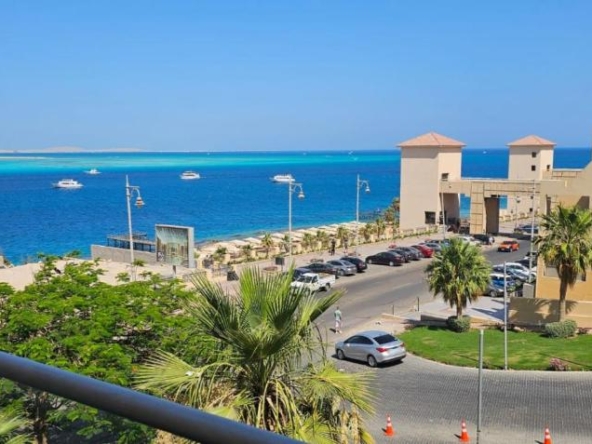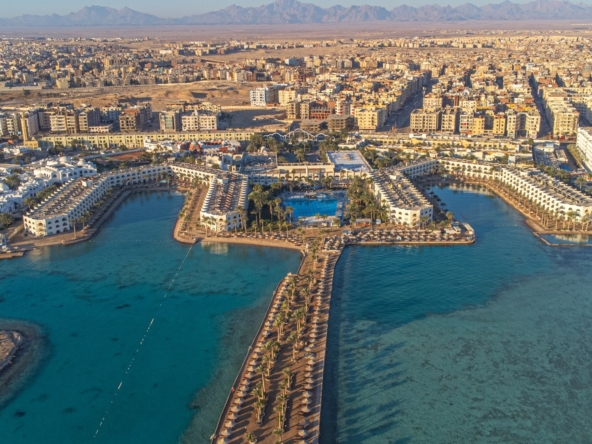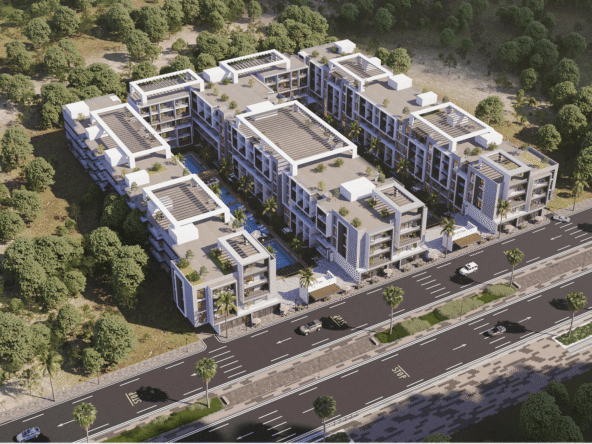Understanding the Cost of Living
The concept of the cost of living encompasses a variety of essential expenses that individuals encounter in their daily lives. It serves as a crucial factor to consider when evaluating the economic feasibility of residing in one location over another. In essence, the cost of living reflects the relative price of goods and services required to maintain a certain standard of living. This analysis involves various components, including housing, utilities, transportation, food, and healthcare, each playing a significant role in the overall assessment.
Firstly, housing costs are often the most substantial portion of an individual’s budget, varying significantly based on location. In urban areas, rental prices for apartments and homes tend to be higher, driven by demand and availability. In contrast, coastal living—such as in Hurghada—may present different opportunities, where housing costs could be more favorable, albeit with variations in property types and amenities available.
Utility expenses, which include electricity, water, gas, and internet services, also differ depending on the region. Coastal cities may require more energy consumption due to climate considerations, which can influence monthly utility bills. Transportation costs, which encompass public transport fees as well as petrol prices for personal vehicles, are essential when calculating the overall living expenses in both urban and coastal settings.
Food and healthcare are additional critical components of the cost of living. While grocery prices can fluctuate based on proximity to suppliers and markets, healthcare accessibility and affordability are vital for ensuring a healthy lifestyle. A careful comparison of these components allows prospective residents to better understand how living in Hurghada contrasts with life in Cairo. As we proceed, it becomes evident that assessing the cost of living involves a nuanced examination of these various factors and their interplay.
Housing and Rent Prices
When considering the cost of living in Hurghada compared to Cairo, housing and rent prices are significant factors that warrant thorough examination. Both cities offer a range of options, yet they vary widely in price and availability. In Hurghada, a coastal city popular among tourists and expatriates, rental prices tend to be lower than those in Cairo, reflecting the local demand and the overall economic landscape. For instance, the average monthly rent for a one-bedroom apartment in the city center of Hurghada is around 5,000 EGP, whereas in Cairo, it is often upwards of 8,000 EGP.
Purchasing property also shows a considerable difference in cost. In Hurghada, prices can range from 600,000 EGP for a modest studio apartment to over 2 million EGP for luxury beachfront properties. In contrast, Cairo’s property market is more variable, with prices ranging anywhere from 1 million EGP for an apartment in less affluent areas to several million for those in upscale neighborhoods. This discrepancy can largely be attributed to Hurghada’s status as a tourist destination, creating a lower demand for long-term residential properties compared to the capital city.
The diversity of housing options in both cities contributes to the overall cost of living experience. In Cairo, residents can choose from a plethora of modern high-rises, traditional homes, and gated communities, catering to various social classes. Hurghada, meanwhile, offers a more limited yet diverse selection, including villas, apartments, and seasonal rentals that attract many foreign investors. Factors such as location, local economy, and the influx of tourists play a crucial role in shaping the real estate market and consequently influence the rental prices.
Overall, understanding the differences in housing and rent prices between Hurghada and Cairo provides valuable insights for prospective residents as they navigate their living arrangements in these two distinct cities.
Daily Expenses: Food, Transportation, and Utilities
When examining the cost of living in Hurghada compared to Cairo, daily expenses—particularly those associated with food, transportation, and utilities—play a crucial role. Understanding these costs can offer clarity to potential residents and visitors regarding their financial commitments in each city.
Food expenses represent a significant portion of everyday budgeting for residents. In Cairo, dining out can cost anywhere from 50 to 150 EGP for a meal at a mid-range restaurant, while grocery shopping remains relatively affordable with basic items priced similarly to Hurghada. However, due to an abundance of resorts and tourist-oriented restaurants, the cost of dining in Hurghada can be higher, averaging around 100 to 200 EGP per meal, particularly in establishments catering to tourists. On the grocery side, staple items such as bread, rice, and vegetables can be found at comparable prices in both cities, although imported goods may incur a premium in Hurghada due to its geographic location.
Transportation is another important aspect to consider. Public transportation in Cairo is well-developed, with options like the Metro and microbuses offering low fares ranging from 5 to 7 EGP. Conversely, public transport options in Hurghada are limited, and while minibus fares are low (around 5 EGP), accessibility can be an issue. Many residents in Hurghada opt for private vehicles, which come with expenses such as fuel, maintenance, and insurance that can add up significantly. Car ownership in both cities demands careful financial planning.
Utilities also vary between the two cities. Typical utility bills, which include electricity, water, and internet, are generally higher in Hurghada due to the increased demand from tourists and seasonal residents. A standard monthly bill for electricity could average between 600 to 800 EGP in Hurghada, while similar services in Cairo might range around 400 to 600 EGP. Internet costs remain somewhat consistent, averaging about 400 EGP across both locations.
In summary, residents of both Hurghada and Cairo face distinct financial challenges with regard to daily living expenses, driven primarily by lifestyle choices and the varying availability of affordable services. Apt financial planning is essential for maintaining a comfortable standard of living in either city.
Quality of Life Considerations
When evaluating the cost of living in Hurghada compared to Cairo, it is essential to consider various quality of life factors that may significantly influence residents’ satisfaction and well-being. While financial aspects are important, the overall lifestyle experience often plays a critical role in determining one’s choice of residence.
One notable element is the climate. Hurghada offers a warm, arid climate with abundant sunshine year-round, making it an appealing destination for those who enjoy outdoor activities and a beach-centric lifestyle. In contrast, Cairo experiences a more varied climate with hotter summers and cooler winters. This difference can influence residents’ health, mood, and recreational opportunities, impacting overall quality of life.
Cultural offerings also differ between the two cities. Cairo, known for its rich historical heritage, boasts an array of museums, theaters, and cultural events, appealing to those who value artistic and educational experiences. Conversely, Hurghada is renowned for its proximity to the Red Sea and recreational activities such as scuba diving and water sports. The availability of leisure activities in both cities can significantly impact residents’ social lives and satisfactions.
Access to essential services, such as healthcare and education, is another critical factor. Cairo has a wide selection of hospitals and educational institutions, which may benefit families and individuals seeking quality services. However, Hurghada also offers healthcare facilities catering to both locals and tourists, although they may not be as extensive as those in Cairo. Assessing the quality and accessibility of services is vital when considering the overall living experience in either city.
Lastly, community and lifestyle motives, such as the sense of belonging and the opportunities for social engagement, shape residents’ experiences. Hurghada is often perceived as having a more relaxed and resort-like atmosphere, whereas Cairo is bustling and culturally vibrant. Each city’s lifestyle and community dynamics are key components that, combined with cost considerations, create a comprehensive picture of living in either location.




